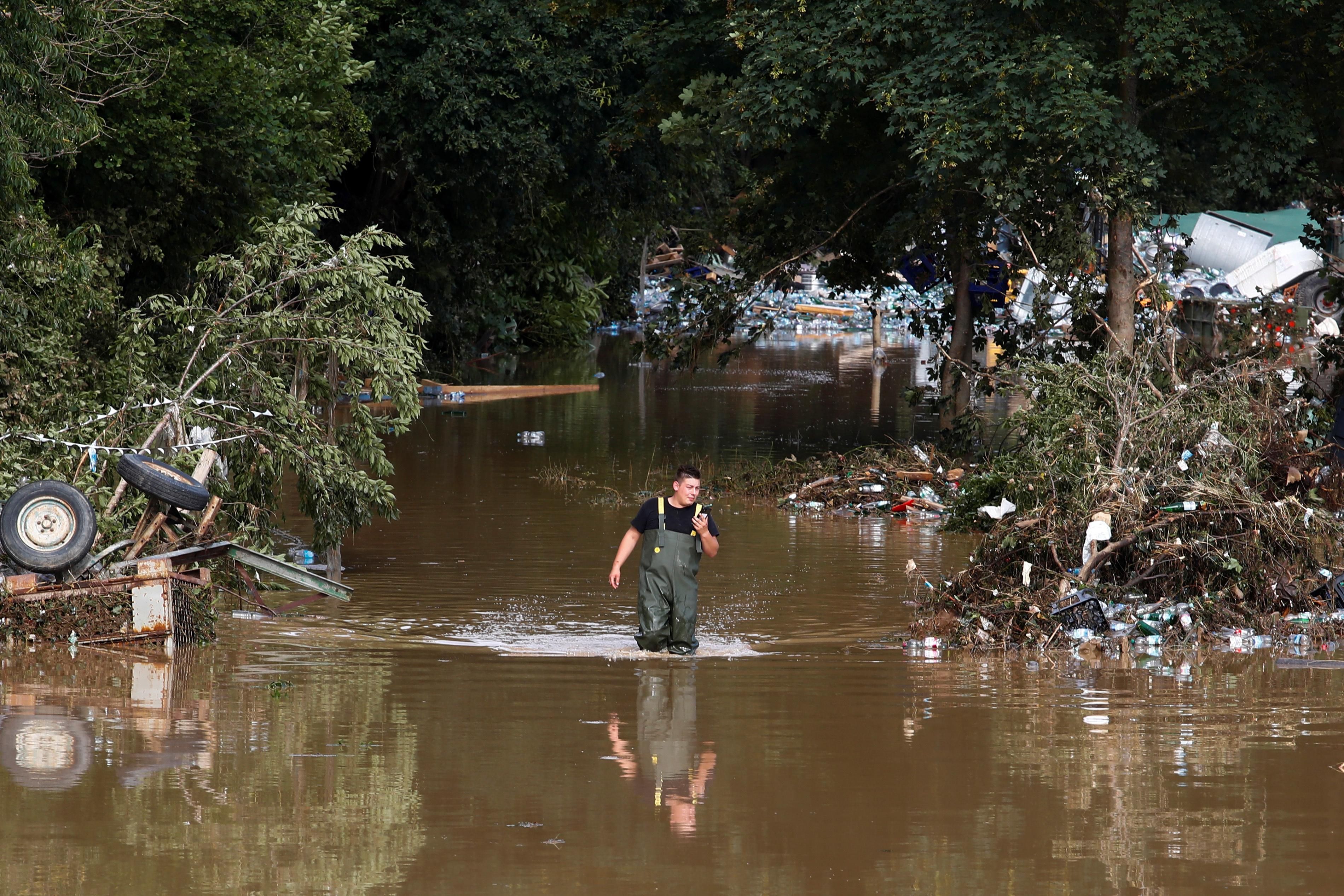News
July 15, 2021
95: At least 95 people have been killed and dozens are missing after flash floods swept parts of Europe, with Germany bearing the brunt of the onslaught, reporting 81 deaths. Belgium and the Netherlands have also been hit hard by the deadly floods, which experts say are in part caused by climate change.
30: Drug overdose deaths in the United States rose 30 percent in 2020, according to new CDC data. Medical professionals have long been accused of overprescribing opioids in exchange for kickbacks from pharmaceutical companies. (Alex Gibney's fascinating documentary The Crime of the Century documents how Purdue Pharma, owned by the infamous Sackler family, helped engineer the current crisis.)
25,000: The South African government is deploying 25,000 troops to try to quell widespread looting and rioting that erupted in the wake of last week's imprisonment of Jacob Zuma, the former president and African National Congress stalwart. At least 72 people have been killed amid the most significant bout of unrest there since the end of apartheid.
40: Over 40 percent of the Australian population is under stay-at-home orders after an outbreak of new COVID cases in Sydney and Melbourne, the two most populous cities. Only 12 percent of Australians are fully vaccinated, and Prime Minister Scott Morrison has been accused of botching the inoculation drive.More For You
World Central Kitchen staff hand out free soup in a neighbourhood that experiences electricity and heating outages following recent Russian attacks on Ukraine’s civilian infrastructure during subzero temperatures in Kyiv, Ukraine February 3, 2026.
REUTERS/Thomas Peter
1,170: The number of high-rise buildings in Kyiv that were left without heating following a barrage of Russian attacks last night on Ukraine’s capital and its energy facilities, per Kyiv Mayor Vitali Klitschko.
Most Popular
What We’re Watching: US critical minerals summit, Rafah crossing reopens, Border violence in Pakistan
Feb 02, 2026
U.S. President Donald Trump and Japanese Prime Minister Sanae Takaichi hold up signed documents regarding securing the supply of critical minerals and rare earths, at a bilateral meeting at Akasaka Palace in Tokyo, Japan, October 28, 2025.
REUTERS/Evelyn Hockstein
Representatives from the European Union, United Kingdom, Japan, and others will meet in Washington this week to discuss a strategic alliance on critical minerals.
Hard numbers: Large protests in Czechia, UAE-linked firm has large stake in the president’s company, & More
Feb 02, 2026
People take part in a rally in support of Czech President Petr Pavel, organised by Million Moments for Democracy group in reaction to dispute between President Pavel and Czech Foreign Minister and Motorists chair Petr Macinka, in Prague, Czech Republic, February 1, 2026.
REUTERS/Eva Korinkova
80,000: The number of people estimated to be in the streets of Czechia on Sunday to show their support for President Petr Pavel after he blocked the nomination of an environmental minister who performed the Nazi salute and posted Nazi memorabilia.
US President Donald Trump and musician Nicki Minaj hold hands onstage at the US Treasury Department's Trump Accounts Summit, in Washington, D.C., USA, on January 28, 2026.
REUTERS/Kevin Lamarque
The US has started handing $1,000 to the bank accounts of newborn babies. But can policies like this one help boost sagging birthrates in advanced democracies?
© 2025 GZERO Media. All Rights Reserved | A Eurasia Group media company.
